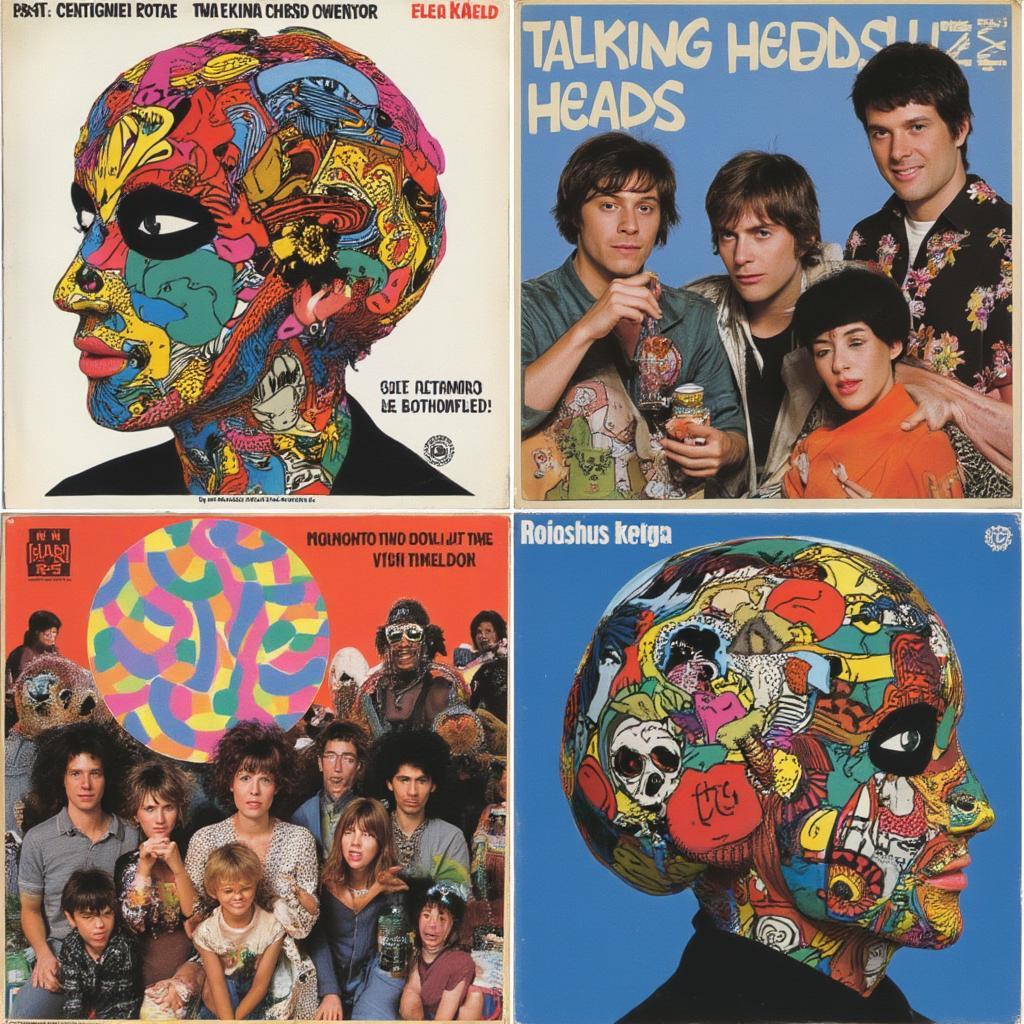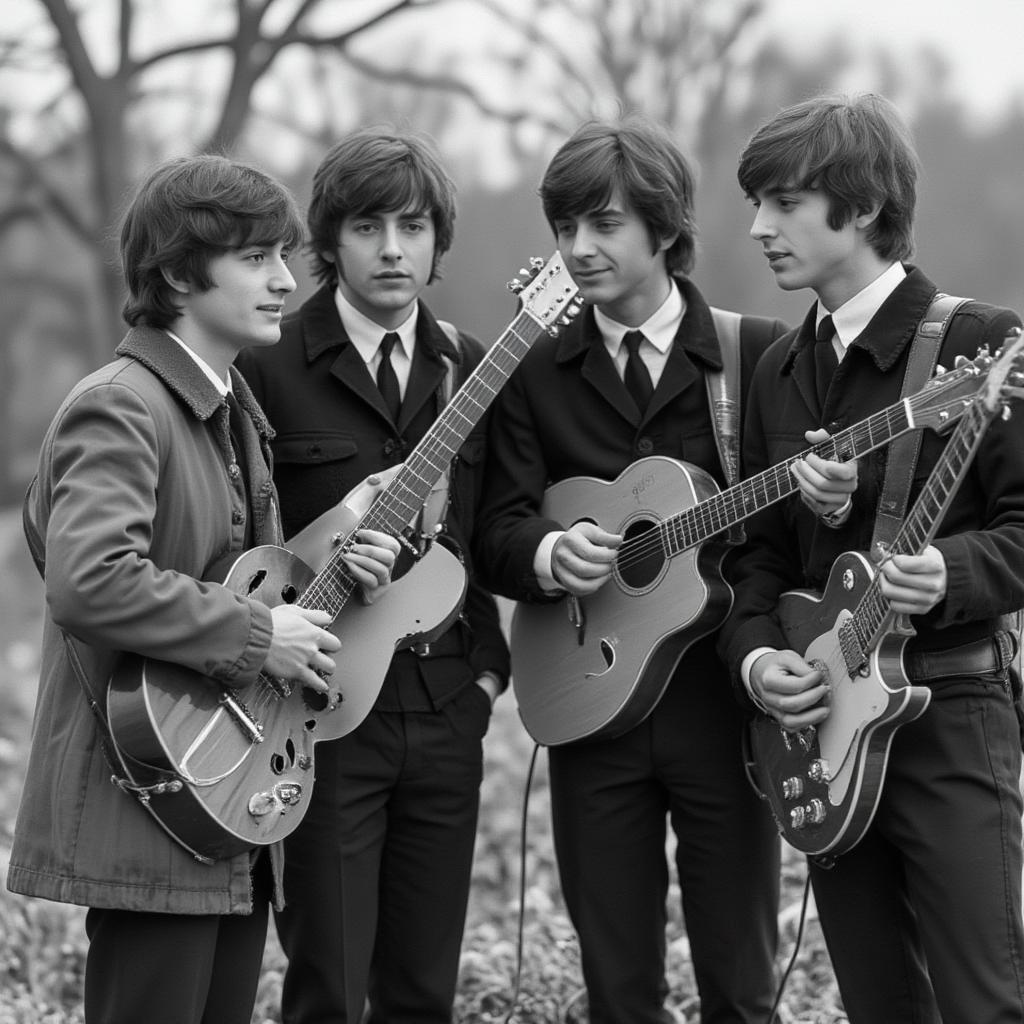Talking Heads Hall of Fame: A Deep Dive into Their Enduring Legacy

The Talking Heads, a band that redefined new wave with their quirky rhythms and David Byrne’s unmistakable stage presence, have become synonymous with intelligent, art-driven rock. Their music, a fascinating blend of punk, funk, and world beat influences, continues to captivate listeners decades after their prime. This article delves into the critical question of whether the Talking Heads deserve a place in the hallowed halls of the Hall of Fame, exploring their unique contributions to music and their lasting impact on popular culture. The question, “Should the Talking Heads be in the Hall of Fame?” isn’t just about accolades; it’s about recognizing their groundbreaking approach to music creation.
Why Talking Heads Matter: More Than Just a Band
Talking Heads weren’t your typical rock band. They emerged from the vibrant punk scene of the mid-1970s, yet quickly distinguished themselves through their intellectual lyrics, complex polyrhythms, and Byrne’s utterly unique vocal delivery and stage presence. They didn’t just play music; they created a performance art that was both deeply cerebral and irresistibly danceable. Their influence can be seen in the indie rock bands of the ’80s, ’90s, and even today, which proves their timelessness.
- Innovation in Sound: They were pioneers in incorporating elements of funk, art-pop, and world music into their new wave sound.
- Lyrical Depth: Their lyrics, often quirky and thought-provoking, explored themes of anxiety, alienation, and modern life with surprising depth and wit.
- Visually Distinct: Their stage shows and music videos were just as iconic as their music, thanks to David Byrne’s theatrical performance style.
- Cultural Impact: Talking Heads shaped not only the music landscape but also had a significant impact on art, fashion, and film (think Stop Making Sense).
Key Moments in Talking Heads’ Career
Talking Heads’ discography is a testament to their constant evolution and artistic restlessness. From the raw energy of their debut album Talking Heads: 77 to the funk-infused sounds of Remain in Light, and the more pop-oriented Speaking in Tongues, they consistently pushed boundaries. Here are some critical points in their career:
- Early Days: Starting out in the mid-70s with their art school roots and early CBGB performances.
- The Brian Eno Collaboration: Eno’s influence is evident on Fear of Music, Remain in Light, pushing them into experimental territories.
- Stop Making Sense: A groundbreaking concert film that showcased their stage show and solidified their status as a live force.
- Later Albums: Exploring different sonic landscapes on albums like Speaking in Tongues and Little Creatures.
- Post-Breakup: All the band members pursued other creative ventures, leaving behind a significant legacy.
“Talking Heads redefined what new wave could be,” states Dr. Eleanor Vance, a musicologist and professor at the University of California, Berkeley. “Their combination of cerebral lyrics, innovative rhythms, and Byrne’s theatrical performance were unlike anything seen before.”
The Hall of Fame Debate: Are Talking Heads Worthy?
The debate surrounding the Talking Heads’ Hall of Fame status often sparks passion among music fans. Some argue that their avant-garde approach and experimental leanings may not resonate with a more mainstream understanding of rock and roll, while others insist that their innovative spirit and lasting influence make them essential inductees. The question isn’t just about sales figures or chart performance; it’s about their musical innovation and cultural impact. Let’s delve into some of the arguments for and against their induction:
Arguments FOR Talking Heads in the Hall of Fame:
- Innovation: They consistently pushed the boundaries of new wave and art-pop.
- Influence: Many contemporary artists across various genres cite the Talking Heads as a significant influence.
- Cultural Significance: The band has had an impact on not just music but also cinema, fashion, and performance art.
- Unique Sound: Their sound was, and remains, instantly recognizable and unlike any other.
- Artistic Merit: Their output was not just commercially successful but also artistically ambitious and highly original.
Arguments AGAINST Talking Heads in the Hall of Fame:
- Commercial Success: While they were successful, their sales numbers aren’t as high as other mainstream acts.
- Mainstream Appeal: Their experimental nature made them more of an acquired taste for the general public.
- Lack of Traditional Rock Roots: Some argue that their art-pop and funk influences set them too far apart from traditional rock.
- Internal Strife: Their breakup was reportedly messy and not conducive to creating an easy narrative for induction.
The 2021 rock and roll hall of fame class highlighted artists that have challenged the status quo; a similar argument could be used for the Talking Heads.

The “Helpful Content” Argument: Why They Deserve Recognition
From a “helpful content” perspective, Talking Heads’ influence extends beyond their musical prowess. Their approach to music-making—blending different genres, exploring complex themes, and prioritizing innovation—offers valuable insights for aspiring artists and songwriters.
- Genre-Blending: They demonstrate the power of combining different musical styles to create something entirely new.
- Artistic Risk-Taking: They teach the importance of taking artistic risks and challenging established norms.
- Visual Expression: Their focus on visual aspects shows that music is not just about sound, but also about presentation and performance.
- Collaboration: The band’s collaborative spirit and Brian Eno’s production methods can be studied for effective teamwork in creative ventures.
“The Talking Heads’ impact is undeniable,” says music critic, Johnathan Myers, “From their innovative musical arrangements to Byrne’s unparalleled stage presence, they redefined what it meant to be a rock band. Not only did their music stand the test of time but their influence can be seen throughout the indie music of the past 30 years.”
A Deeper Look: Talking Heads’ Influence
Talking Heads’ reach goes far beyond their recorded output. They have influenced genres from indie rock to electronic music to post-punk revival. Their unique take on performance art also impacted the visuals of a generation of musicians.
Who Did the Talking Heads Influence?
- Indie Rock: Bands like Radiohead, Arcade Fire, and LCD Soundsystem owe a clear debt to Talking Heads’ experimental approach.
- Electronic Music: Their use of polyrhythms and funk elements prefigured the rise of electronic dance music.
- Visual Art: Their videos and stage performances helped blur the lines between music and performance art.
- Fashion: David Byrne’s quirky sense of style influenced a new generation of artists.
- Cultural Thinking: Their lyrical themes and approach to music encouraged a more intellectual understanding of pop.
The Timelessness of Talking Heads
The reason Talking Heads continue to resonate with audiences today is because they addressed universal themes of anxiety, isolation, and the complexities of modern life in a way that felt both deeply personal and broadly applicable. Their music is not just a product of its time; it continues to reflect the human condition.
- Lyrical Themes: Their lyrics speak to the alienation and anxieties of modern life, themes that are still relevant today.
- Unique Rhythms: Their use of polyrhythms and funk elements makes their music both intellectual and danceable.
- Artistic Vision: Their commitment to artistic vision makes their work timeless and inspiring.
- Enduring Legacy: Their influence continues to permeate modern music and culture.
Conclusion: An Undeniable Legacy
Whether the Talking Heads find their rightful place in the Hall of Fame is ultimately decided by the voting committee, but their undeniable influence on music and culture cannot be ignored. Their innovation, intellectual depth, and unique approach to performance art place them among the most important and influential bands of the last half-century. Their music isn’t just about the sound; it’s about the ideas they introduced, the barriers they broke, and the artists they inspired. Talking Heads’ legacy continues to grow and influence, proving that they’re much more than just a band—they’re a cultural force that deserves to be celebrated.
Frequently Asked Questions About Talking Heads and the Hall of Fame
- What genre of music did the Talking Heads play?
Talking Heads blended new wave, art-pop, funk, and world music elements to create their unique sound, which is challenging to classify under a single label. - What is ‘Stop Making Sense’ and why is it important?
Stop Making Sense is a groundbreaking concert film that captures their theatrical performance, helping solidify the band’s reputation for innovative and unique live shows, becoming a cultural cornerstone. - Why are the Talking Heads considered influential?
The band is considered influential due to their unique approach to music, blending genres, and their intellectual and thought-provoking lyrics, that have inspired countless musicians across genres. - What is the current status of the Talking Heads as a band?
The Talking Heads broke up in 1991 and have not reunited for new recordings or performances, despite their significant impact on music history. - Why is there a debate about their Hall of Fame induction?
Some argue that they were too experimental, lacked mainstream success or didn’t have traditional rock roots, while fans champion their influence and innovation as qualification. - How did Brian Eno influence the band?
Brian Eno, a record producer, greatly influenced their experimental sound, particularly on albums like Fear of Music and Remain in Light, helping them move into experimental territories. - What makes David Byrne’s stage presence so unique?
Byrne’s stage presence is marked by his quirky, often awkward movements and large suits, which contributed significantly to their visual identity, blending music and performance art in a new way.



